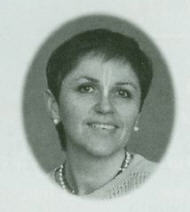
Yamuna Mataji
I'D LIKE TO WELCOME YOU ALL to this cooking column. Vaisnavas, or devotees of Lord Krsna, have been exploring this devotional art for millennia. This is a subject of such history, depth, and importance that a lifetime of study barely scratches its surface.
My involvement with both an Indian and a vegetarian way of life began in 1966. I went to New York to attend my sister's wedding and met Srila Prabhupada, founder-acarya of a fledgling ISKCON. Arriving the day before the wedding, I was unexpectedly whisked off to a lunch at his apartment. Everything about the experience was exotic—the menu, the atmosphere, the guests, the hospitality.
The following day, I volunteered to shop and assist Srila Prabhupada with the wedding feast. Within an hour of my arrival, I was introduced to new spices and seasonings, unfamiliar ingredients, and foreign cooking techniques. Given the stationary task of shaping potato-stuffed pastries, called aloo kacauris, I observed him from the adjoining room.
Working in a narrow galley kitchen, he was organized and impeccably clean, simultaneously preparing up to four dishes at a time. His flow of activity was efficient and graceful, and, save for his instructions to me, his attention focused solely on his craft. He performed a number of tasks by hand, without the help or likely hindrance of tools. He measured each spice in his left palm before use. He hand-kneaded dough, hand-shaped dumplings, and hand-brayed fresh cheese until smooth—and, despite his advanced age, all with lightning speed. I was intrigued by his obvious satisfaction in every task he undertook. After having cooked all day, he performed the wedding ceremony that evening—the event culminating in the lavish eighteen-course feast he had prepared.
In March of 1967, within six months of our meeting, I asked Prabhupada to take me as his disciple, and thus Joan Campanella became Yamuna Devi. Off and on over the next eight years, I was fortunate enough to serve as his cook, in America, England, and India.
In the fall of 1970, Srila Prabhupada brought about twenty Western disciples to India, and I was one of the entourage. It was here that many of us began a serious study of Vaisnava cooking. For eight months we accompanied Prabhupada on extensive tours of the subcontinent. This gave his cooks the opportunity to learn from scores of famous brahmanacooks. In some cases we were the first Westerners, and certainly the first women, privileged to enter previously restricted temple kitchens. Lavish royal kitchens sometimes engage as many as fifty cooks and a hundred servers for festivals—and though India speaks thousands of dialects, kitchen language is universal.
The majority of India's more than 650 million Hindus are vegetarian. Hundreds of millions of these vegetarians are Vaisnavas, and their homes all have small temples in them. Further, there are thousands of established public Krsna temples in cities and villages across the country. Traveling with Srila Prabhupada afforded me the opportunity to visit these Vaisnava devotees and study with them.
In the future months, several articles will focus on Srila Prabhupada's kitchen pastimes or instructions. Nearly eighteen years ago, at a lunch I prepared for him in Calcutta, he casually informed me that if I didn't share this knowledge with others, I would become envious, an edict I am still trying to understand to this day.
Some months we will focus on the traditions and recipes of Vaisnava temple kitchens—Vrndavana's Sri Radha Ramana Temple or Jaipur's Sri Radha Govinda Temple. In the process, we will observe the diversities and similarities of these medieval Indian temple kitchens. We will enter the kitchens of Hare Krsna restaurants from Hong Kong to London. We will savor the atmosphere and menus created by great Vaisnava cooks in past centuries. We will focus in on subtle but essential aspects of this devotional art—internal and external cleanliness and purity. We will study the practical master classes on technique, ingredients, menu planning, organization, and serving.
And I welcome you, the reader, to send in requests for topics. Anything and everything related to Vaisnavas in the kitchen. No matter what your involvement with this study, you will be enlivened, inspired, and rewarded.
Yamuna Devi is the author of Lord Krishna's Cuisine: The Art of Indian Vegetarian Cooking, which won the highest award from the International Association of Cooking Professionals for cookbooks published in 1987 in the United States. Write to her c/o BTG.
